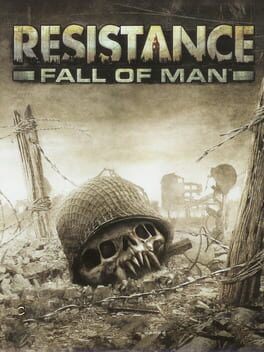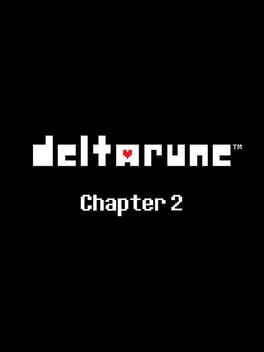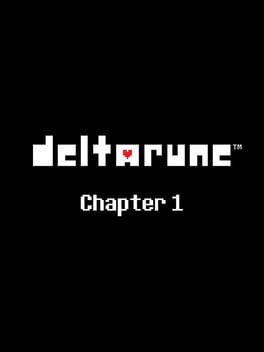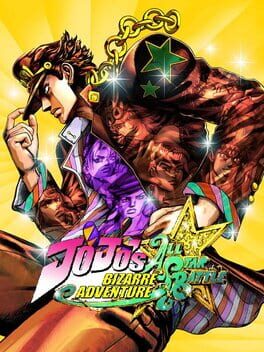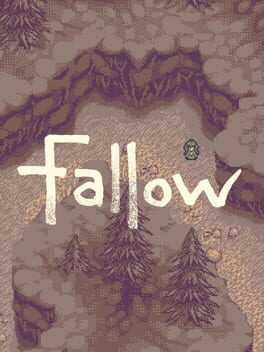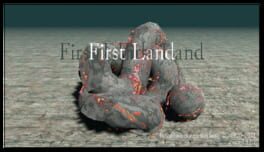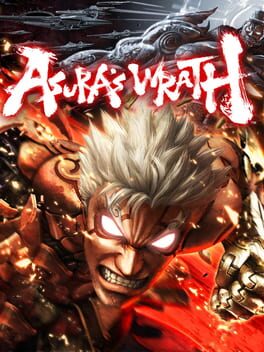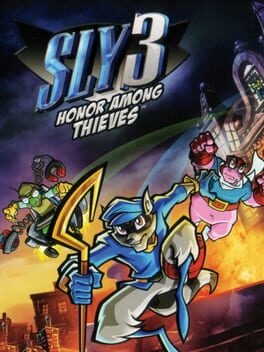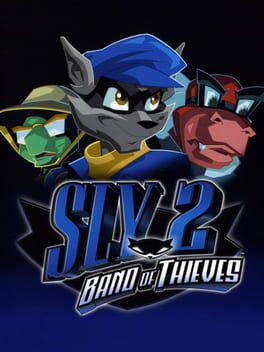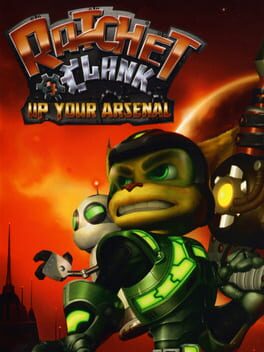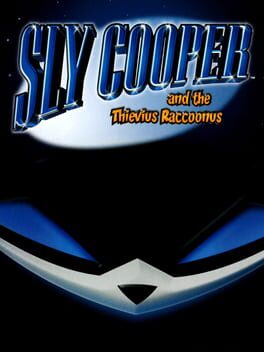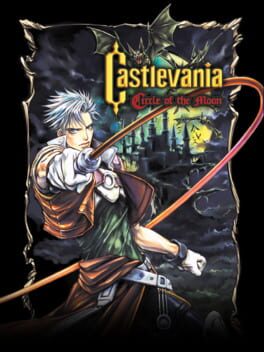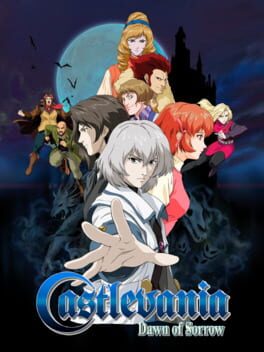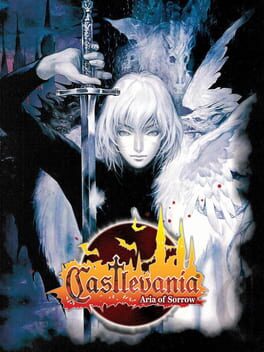El equipo detrás de Ratchet & Clank intenta crear una mezcla insulsa entre Halo y Call of Duty ¿Te llama? Menudo rollo.
--------------------------------------------------------------------
The team behind Ratchet & Clank tries to an hybrid between Halo and Call of Duty. Are you excited? Just personified blandness.
--------------------------------------------------------------------
The team behind Ratchet & Clank tries to an hybrid between Halo and Call of Duty. Are you excited? Just personified blandness.
2021
This review contains spoilers
I am going to try to collect my thought in some form of essay, but for the time being, I think Deltarune suffers because it tries to operate on three very different layers at the same time: one comes from the mechanics, another from the narrative and the last one from the metanarrative of it all.
The first layer tries to deepen the critique that Undertale already exposed by suggesting a combat system in which you wouldn't need to use the Fight command anywhere by making the Action as diverse and varied as possible. This means that, for all purposes, Actions now are akin to the decisions you make in a visual novel or a graphic adventure, which is fine, but makes framing these encounters as "fights" weirder and weirder. If we take into account that some of the Actions are understood by the narrative as acts of violence as well, then what purpose does setting this distinction make anymore? And considering that now there's a collectable element to sparing enemies, that makes the whole affair just another mechanical chore that hast lost all the bite it purported to have.
The second layer is probably the strongest, because it tries to convey an emotional truth through dialogue and characters that feel as charming and relatable as they were in Undertale. I said this before, but if I keep playing these titles is for the characters. But that poses an important problem, which is that basically I'm not allowed to know about some of these characters' more interesting traits if it's not by straining them out of the "good" path, which is still as rigid as before. Instead of creating a tantalizing moment in which I'm wondering whether to explore some part of Noelle's past or the other, I have to choose between a pre set "pacifist" route that morally obligues me to not knowing these characters unless I deliberately bring harm unto them.
Which brings us to the third and last layer, the metanarrative. Just like with Undertale, Deltarune tries to make a point about choosing to be a bad person in video games and suffering the consequences, and unlike the first chapter, it reaffirms the consequences of my actions and encourages me to suck them up. But I mus ask, what is the point of it now? Do I really need to be taught that there are better ways to play? In that case, why develop a whole system around a specific ability (the Ice Magic of Noelle) and its outcome? Just for the sake of it? Isn't that diametrically opposed to what the game purports to be about?
I think Deltarune is confused about which route to take, and in trying to do everything at the same time, suffers for it. I know why I'm playing it, but I'm bothered that it thinks that I'm doing it for the wrong reasons.
The first layer tries to deepen the critique that Undertale already exposed by suggesting a combat system in which you wouldn't need to use the Fight command anywhere by making the Action as diverse and varied as possible. This means that, for all purposes, Actions now are akin to the decisions you make in a visual novel or a graphic adventure, which is fine, but makes framing these encounters as "fights" weirder and weirder. If we take into account that some of the Actions are understood by the narrative as acts of violence as well, then what purpose does setting this distinction make anymore? And considering that now there's a collectable element to sparing enemies, that makes the whole affair just another mechanical chore that hast lost all the bite it purported to have.
The second layer is probably the strongest, because it tries to convey an emotional truth through dialogue and characters that feel as charming and relatable as they were in Undertale. I said this before, but if I keep playing these titles is for the characters. But that poses an important problem, which is that basically I'm not allowed to know about some of these characters' more interesting traits if it's not by straining them out of the "good" path, which is still as rigid as before. Instead of creating a tantalizing moment in which I'm wondering whether to explore some part of Noelle's past or the other, I have to choose between a pre set "pacifist" route that morally obligues me to not knowing these characters unless I deliberately bring harm unto them.
Which brings us to the third and last layer, the metanarrative. Just like with Undertale, Deltarune tries to make a point about choosing to be a bad person in video games and suffering the consequences, and unlike the first chapter, it reaffirms the consequences of my actions and encourages me to suck them up. But I mus ask, what is the point of it now? Do I really need to be taught that there are better ways to play? In that case, why develop a whole system around a specific ability (the Ice Magic of Noelle) and its outcome? Just for the sake of it? Isn't that diametrically opposed to what the game purports to be about?
I think Deltarune is confused about which route to take, and in trying to do everything at the same time, suffers for it. I know why I'm playing it, but I'm bothered that it thinks that I'm doing it for the wrong reasons.
2018
I'll say this about Deltarune: at least the combat feels a lot more involving now, even though it's still a little bit too rigid for its own good. I'm no longer impressed by the tiny subversions that Toby Fox and Co. pull you from time to time, and I'm pretty tired of the lore by now. But I can't help but liking these characters too much. If anything, I'll play these for Susie.
2021
2021
A fascinating experience. It brought me back to the days of Dear Esther, in a weird way, and to a time in game design that seemed to prioritize metaphor and meaning over lore and worldbuilding. The story itself isn't really important, although it's fun to put it together; it's the idea of navigating these spaces and letting yourself get woven in the turmoil of their characters that it's so enrapturing.
2012
This game tries to economize its gameplay to make sure that everything you input is as meaningful as possible. To make sure of that, it provides a bombastic and loud story where big events happen constantly, or are brought up in the form of a flashback that avoid boring you on the quieter parts. While I applaud the effort and think that the DLC reaches some particularly interesting heights, it does not bode well for this approach that it requires something epic to happen every few seconds. If this was a TV show, as it's pretending to be most of the time, I'd be a bored by it pretty soon.
What a great, nice bow of an ending. The way the developers allowed the story of Sly to finish in such a conclusive way is something that you seldom see nowadays in franchises of this size anymore. Added to that the sheer mechanical diversity of each stage and you're presented with something that, weirdly enough, seems to approach the sensibility of a graphical adventure that was very good at its arcade challenges. It's understandable that many games don't go this hard on presenting you with such a variety of options (I can't imagine how costly it is today), but the real merit goes to the fact that almost all of them are entertaining and enjoyable in their own right, and don't feel meshed together in an incoherent mix of content.
In many ways, this feels like a natural progression of the first game's mechanics, but that's a very well-crafted illusion for what is essentially a complete overhaul on the mechanics and rhythm of the game. The fact that it works so well and manages to do so, so much with it before the endgame makes it an incredible piece of work that it's only surpassed by its sequel.
The last title of the original trilogy of Ratchet & Clank is also the one that strays further from its platforming roots and into the then-revitalized third-person action shooter. Unlike earlier entries, this game is all about the shooting and the jumping around, which manages to be as entertaining as in Going Commando. Despite that, it is clear that experimentation has been pushed away from providing a central experience, one that isn't so concerned about having a diverse array of gadgets than about having an efficient and competent set of weapons. If it feels like a slight difference, try to maximize them after the first playthrough and you'll notice how big it gets. While it still tries to be a large toybox, it'd seem as if the developers have thrown away the ones that were more difficult to deal with. And that's a shame.
A very conservative platformer that still manages to surprise by virtue of its inmense diversity and great characters. You really feel like you're the leader of the gang by the time you're done with the first world, and the fact that the game doesn't diverge much from its main course makes it very enjoyable. The main thing that I would set against it (aside from some implementation and camera issues) is the fact that you don't really get to know these characters beyond their superficial introduction, which is a shame because it seems like they could come to life if given more room to breathe.
The black sheep of the Advance trilogy that, like Dark Souls 2 today or Castlevania 2: Simon's Quest before, gets maligned by unfortunate circumstance or badly cloaked prejudices against the fact that this wasn't made by Igarashi's team.
It has been argued before that this game feels like a mix between Symphony of the Night and Super Metroid, and I think that's a fair assessment. Despite providing a map that is open for exploration "on paper", you spend most of the time figuring out what your newly acquired abilities are able to open, so that you can explore further areas of the castle, until reaching for the key items that are needed to open the main boss that is near the beginning of the game. An easy to understand concept that is spiced with some customization prompts via a card system that reminds me of the Materia one from FFVII. All in all, a pretty decent title that feels closer to Rondo of Blood and the NES titles than its immediate predecessor.
It has been argued before that this game feels like a mix between Symphony of the Night and Super Metroid, and I think that's a fair assessment. Despite providing a map that is open for exploration "on paper", you spend most of the time figuring out what your newly acquired abilities are able to open, so that you can explore further areas of the castle, until reaching for the key items that are needed to open the main boss that is near the beginning of the game. An easy to understand concept that is spiced with some customization prompts via a card system that reminds me of the Materia one from FFVII. All in all, a pretty decent title that feels closer to Rondo of Blood and the NES titles than its immediate predecessor.
I hate this game so much. So many hours spent looking for stupid Souls that I'm never going to use because it's all for completion sake. The game itself plays fine as it is, but the story is so barebones and forced that I can't bring myself to care. The art change doesn't help either. Anyway, if you liked it more power to you, but this is just not for me.
While Harmony of Dissonance holds a special place for me because it refined the SotN formula so well, I'll concede that Aria of Sorrow is probably the best put-together title of Igarashi's Advance trilogy. Basically every element that was already in previous titles has been systematized to its fullest, with an equipment system that incentivizes repetition and exploration while at the same time offering you a map that is incredibly easy to navigate.
If anything, this is the main thing that, to me, makes AoS less attractive for me. It all feels so curated, so carefully selected, that it doesn't allow for breath in the same way that the more chaotic HoD allowed. As for the story itself, I think it works fine providing closure to the whole Belmont/Dracula arc, but you can't escape the fact that this is set after a mysterious apocalyptic event that has never been told in any form as of today. That doesn't make this title less interesting, but it does make it incomplete somewhat.
If anything, this is the main thing that, to me, makes AoS less attractive for me. It all feels so curated, so carefully selected, that it doesn't allow for breath in the same way that the more chaotic HoD allowed. As for the story itself, I think it works fine providing closure to the whole Belmont/Dracula arc, but you can't escape the fact that this is set after a mysterious apocalyptic event that has never been told in any form as of today. That doesn't make this title less interesting, but it does make it incomplete somewhat.
